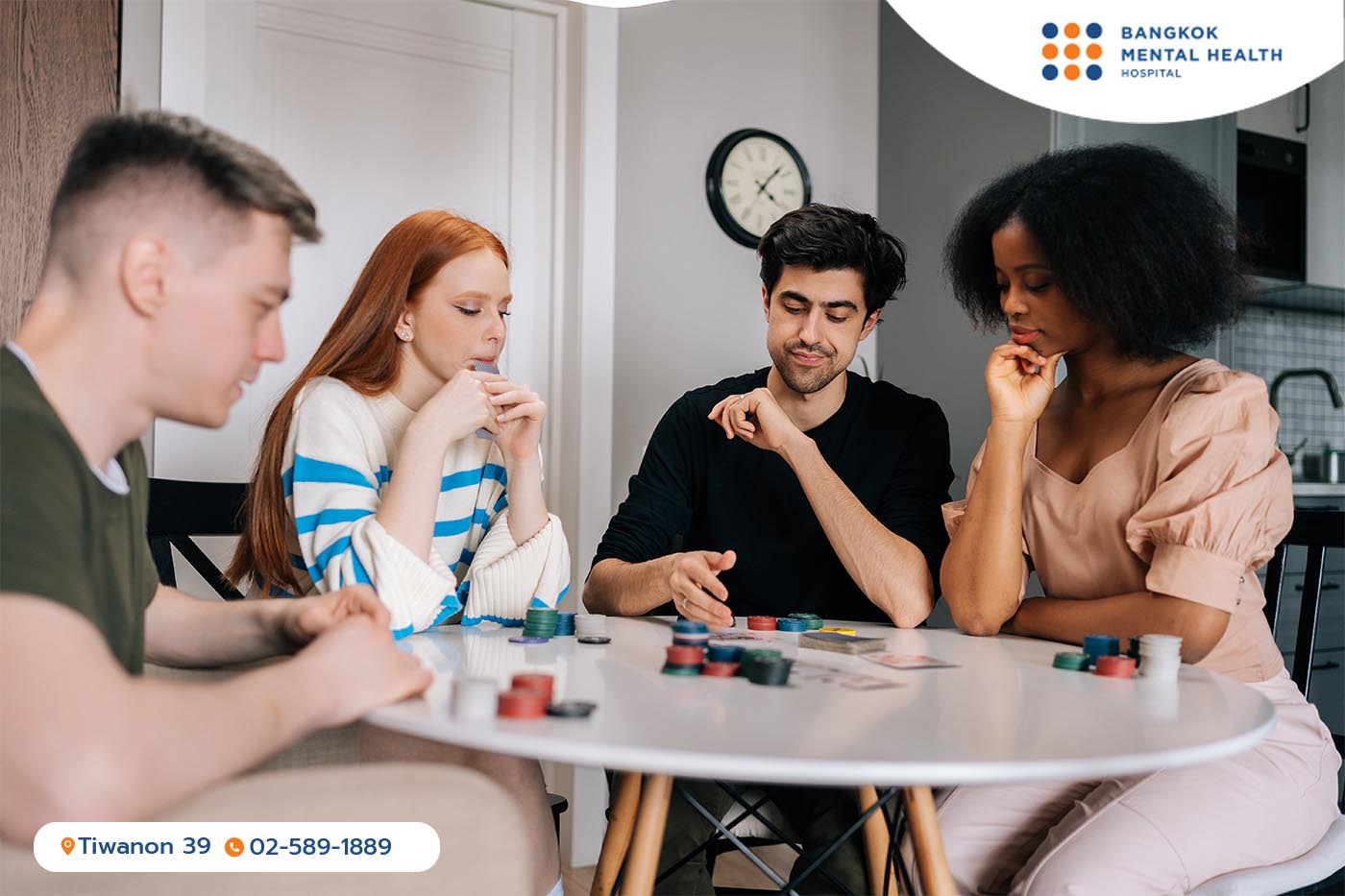
Gambling can be compared to a life trap that ensnares some individuals, potentially leading to utter devastation in various aspects of life, such as family relationships, work, and financial stability. There are a few signs indicating that gambling may be problematic, including:
- The inability to control your gambling.
- Restlessness or irritability when trying to stop or reduce gambling.
- The overwhelming desire to win back losses.
- Borrowing money from others to cover gambling debts.
If you notice any of these signs, it is advisable to consult with a psychiatrist for discussion or treatment.
For the treatment of gambling addiction, three approaches are commonly used
- Medication: While there are no specific medications for gambling addiction, certain medications such as anti-anxiety or antidepressant medications can help address underlying factors contributing to gambling.
- Psychotherapy: Cognitive Behavioral Therapy (CBT) can help to modify thinking pattern and behavior, and Motivational Interviewing can help to promote the motivation to stop gambling.
- Group therapy: This involves bringing together individuals facing gambling issues to share experiences, explore various strategies to quit gambling, and provide mutual support, making quitting more effective.
The success of treatment requires collaboration between the patient and their family. Family members can offer support in reducing or quitting gambling, and it is crucial to avoid blaming or shaming the affected person. Engaging in joint activities, such as exercise, dining, or shopping, can also play a pivotal role in promoting recovery.
Related Articles

Histrionic Personality Disorder
Individuals with Histrionic personality disorder (HPD) often exhibit dramatic and highly emotional behaviors, as their self-worth is largely dependent on the approval and validation of others. Although the theatrical nature of HPD can sometimes appear charming, it often masks a distorted self-image and can lead to significant difficulties in personal relationships and daily life. It’s one of […]

Schizoid Personality Disorder
Schizoid personality disorder is a mental health condition characterized by a persistent pattern of detachment from social relationships and a limited range of emotional expression. Individuals with this disorder often appear distant, aloof, and may have little desire for close friendships or romantic connections. Unlike some other mental health conditions, a person with schizoid personality […]

Bulimia Nervosa
Bulimia nervosa is a serious eating disorder and it can become life-threatening if left untreated. People with bulimia often have a distorted view of their body and an intense fear of gaining weight. This can lead to a cycle of binge eating and compensatory behaviors, such as self-induced vomiting or excessive exercise, in an attempt to control […]
Talk to Doctor
Call Us
Line BMHH